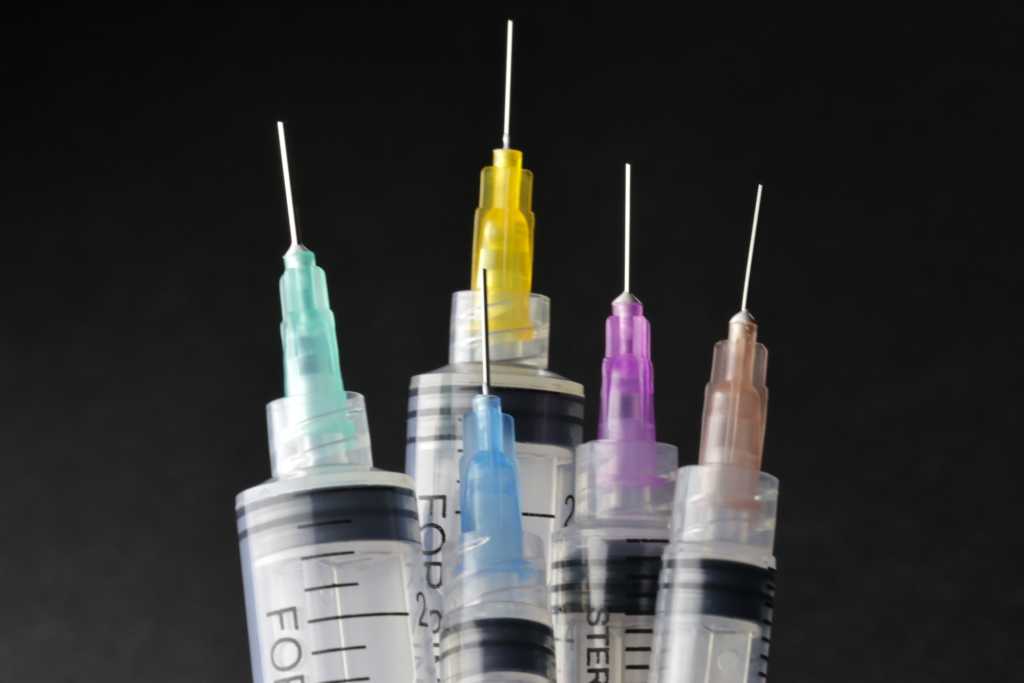As the measles outbreak continues to spread across America — a nation in which the viral infection had been previously eradicated — a lot of people are wondering why in the world anyone would keep their children from receiving vaccinations to prevent these kinds of illnesses.
As it turns out, there are a couple big reasons and one pretty crazy reason.
We’ll first dive into the crazy reason parents choose not to vaccinate their children. Several years ago, in her 2007 memoir, “Louder Than Words: A Mother’s Journey in Healing Autism,” TV personality Jenny McCarthy claimed her now-16-year-old son Evan developed autism at 3 years old after receiving the measles, mumps and rubella (MMR) vaccination.
Former Rep. Michele Bachmann (R-Minn.) similarly claimed in 2011 that the human papillomavirus (HPV) vaccine could cause “mental retardation.”
Numerous studies, including one released in March of this year, have found there is no increased risk of autism for those who receive common, widely accepted vaccines — such as the MMR vaccination — as children.
Why some well-meaning parents refuse vaccines for their kids
There are, though, other, more principled reasons a small number of Christians refuse to vaccinate their children.
One of the main reasons some people oppose vaccinations is actually linked to the pro-life cause. Back in the early 1960s, when measles was very common, cell biologist Leonard Hayflick, in partnership with the Wistar Institute in Philadelphia, reasoned fetal cells would be the best kind of cells to use for vaccines because they were the least likely to have been exposed to outside pathogens.
Using the lung cells of an aborted child, Hayflick ultimately isolated a cell strain now known as WI-38, which was used to develop the majority of human virus vaccinations, to include the MMR vaccine.
The fetal embryo fibroblast cells, procured in 1961 by Hayflick from two abortions, are still used today to develop vaccines. There is no need for any more fetal cells to create these vaccinations.
The second biggest reason people refuse vaccinations is because of the lack of consent in the 1960s and before. At the time, it was very rare — even unheard of — for a research scientist to secure permission from donors or their families to use their cells. Think back to the early 1930s, when the U.S. Public Health Service tested the blood of black Americans for 40 years without their consent as part of an initiative dubbed the “Tuskegee Study of Untreated Syphilis in the Negro Male.”
It wasn’t until 1972, when the Associated Press published a story about the clandestine study, which yielded virtually no benefits for the men who unwittingly participated in the research, that the ethically problematic initiative was finally shuttered.
Christian response to the vaccine objection
Pro-life proponents of vaccinations, including thought leaders with the Southern Baptist Convention’s Ethics and Religious Liberty Commission (ERLC), have pointed to the fact that further abortions are not necessary to develop vaccines.
While not “ethically ideal,” according to the ERLC’s Joe Carter, it is important to note the two aborted infants were not aborted for the sole purpose of harvesting their cells for Hayflick’s research. If that were the case, Carter wrote in 2015, “then it would clearly be immoral.”
“But in the case of the vaccines listed above,” he continued, “the abortion was carried out for other reasons and the tissue was acquired post-mortem for the purpose [of] medical research.”
Francis Collins, director of the National Institute of Health, compared the use of fetal cells from an infant tragically aborted for unrelated reasons to organ donation following the fatal shooting of a child (Carter offered a comparable argument).
Here’s Collins’ reasoning:
There was a terrible, evil loss of life of that child and yet I think we would all say that if the parents decided and they wanted something good to come of this and gave their consent, that’s a noble and honorable action. Does that translate into a parent, after going through a pregnancy termination, deciding that they would like the fetal tissue to actually help somebody?
Similarly, the Catholic Church concluded in 2005 that those who receive vaccinations are not culpable in the original abortions that sparked their discovery, while still offering spiritual cover for those who abstain from vaccinations for moral reasons.
Why it matters in 2019
The reason we’re talking about any of this in 2019 is because the U.S. is currently seeing the largest outbreak of measles in 25 years.
The Centers for Disease Control and Prevention has reported 704 individual cases of measles so far this year across 22 states, according to The New York Times, with the majority of infections concentrated in New York, Michigan and Washington state.
Though it was declared eliminated from the U.S. in 2000, measles has made a roaring comeback in communities with low vaccination rates, and now it’s spreading.
Many of the cases of infection, it should be noted, arose out of Orthodox Jewish communities in Brooklyn and Rockland County, New York, as well as in southern Washington state.



